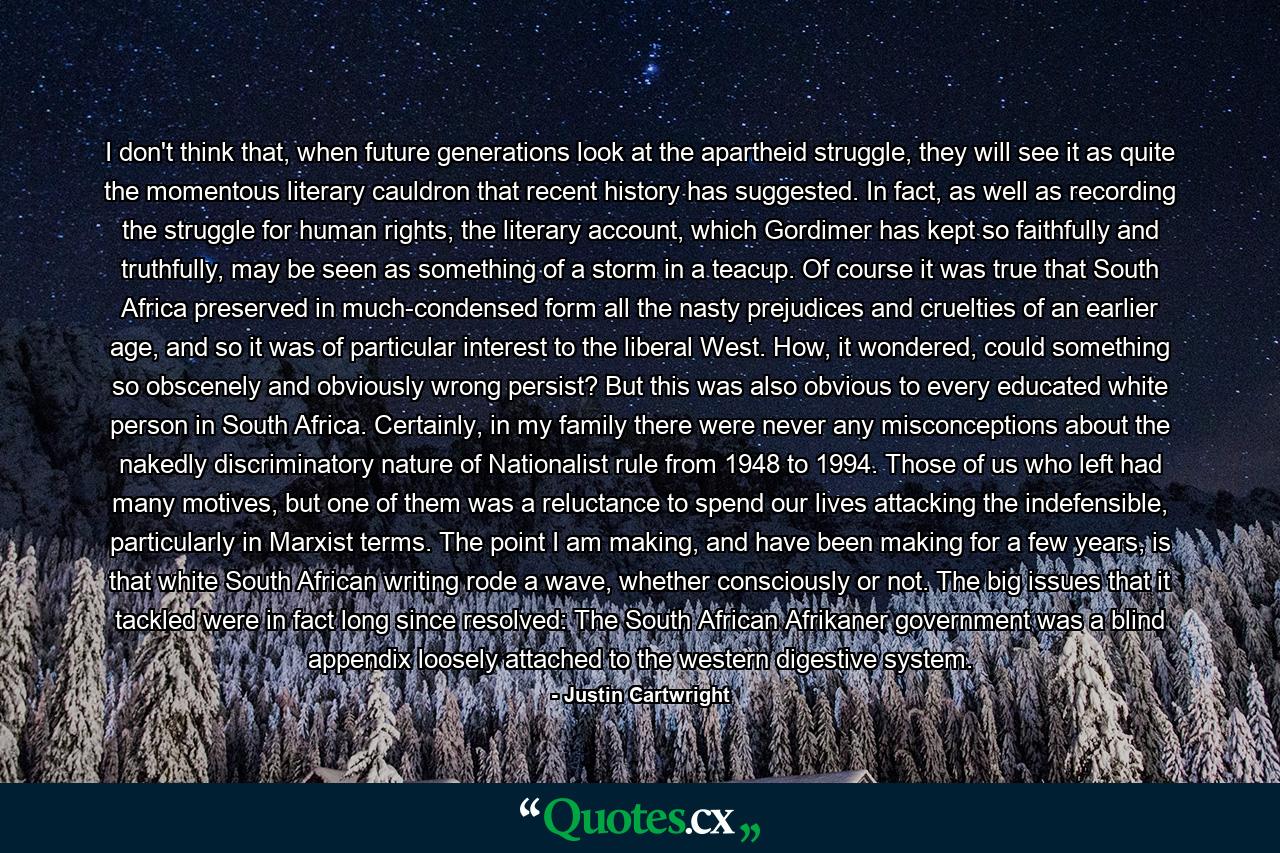I don’t think that, when future generations look at the apartheid struggle, they will see it as quite the momentous literary cauldron that recent history has suggested. In fact, as well as recording the struggle for human rights, the literary account, which Gordimer has kept so faithfully and truthfully, may be seen as something of a storm in a teacup. Of course it was true that South Africa preserved in much-condensed form all the nasty prejudices and cruelties of an earlier age, and so it was of particular interest to the liberal West. How, it wondered, could something so obscenely and obviously wrong persist? But this was also obvious to every educated white person in South Africa. Certainly, in my family there were never any misconceptions about the nakedly discriminatory nature of Nationalist rule from 1948 to 1994. Those of us who left had many motives, but one of them was a reluctance to spend our lives attacking the indefensible, particularly in Marxist terms. The point I am making, and have been making for a few years, is that white South African writing rode a wave, whether consciously or not. The big issues that it tackled were in fact long since resolved: The South African Afrikaner government was a blind appendix loosely attached to the western digestive system.
